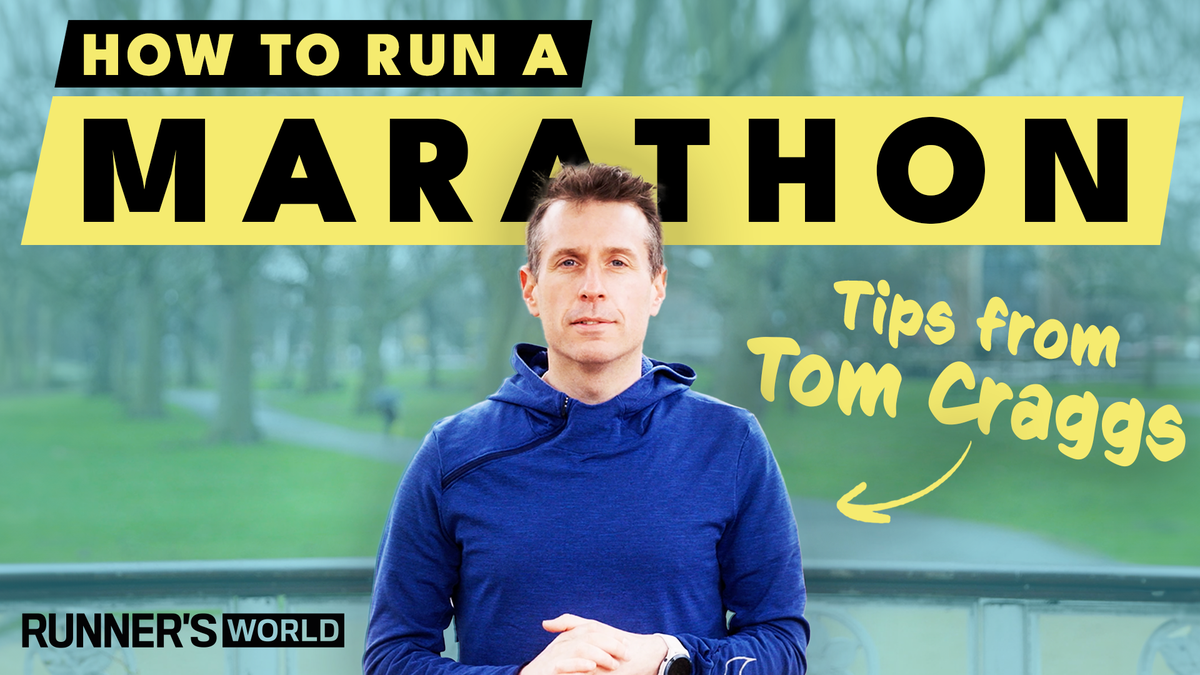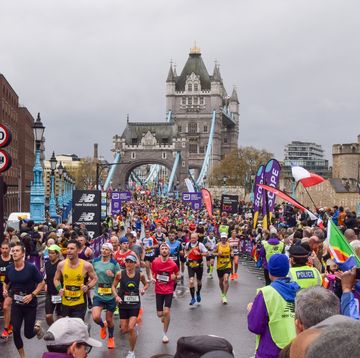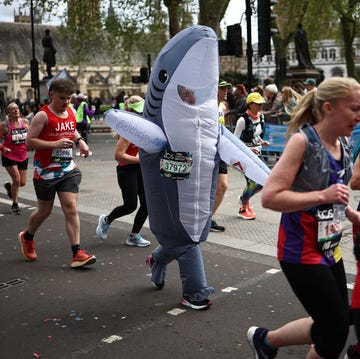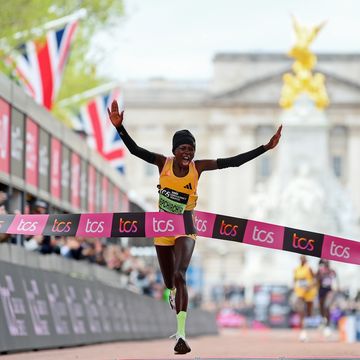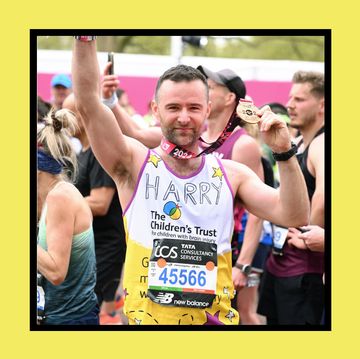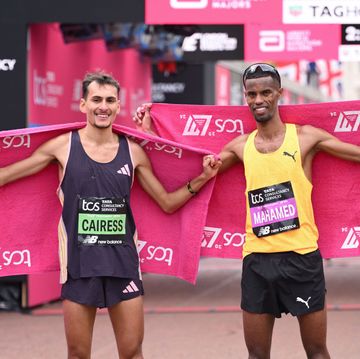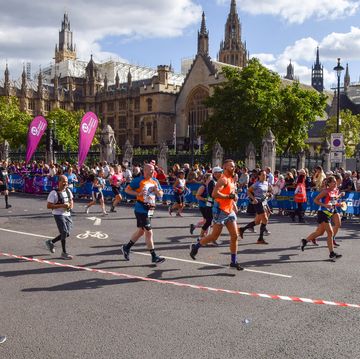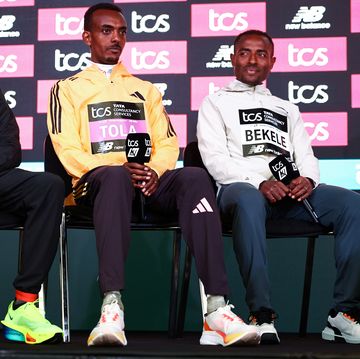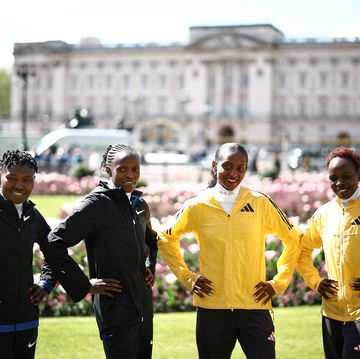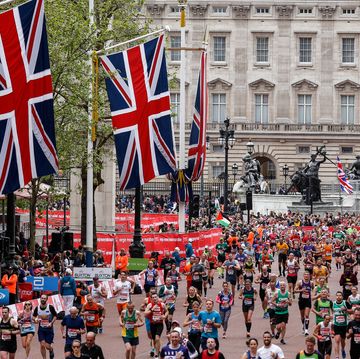One thing everyone tells you before your first (or even your fiftieth) marathon, is that it’s as much a mental challenge as it is physical. For most runners, getting your mind around 26.2 miles is as difficult as it is your body.
Famously, three-time London Marathon winner Paula Radcliffe used a counting trick to distract her mind during the final miles of a marathon. Telling the BBC, 'Everybody, whatever level you're running at, will go through at least one difficult period in the race. It can come out of the blue, but it's rarely in the first half of the race. Even when I've run a personal best I've still gone through rough spots.'
'It's important not to panic and to keep focused. Use little techniques to make yourself think about the moment, whether it's singing to yourself, counting landmarks or counting in your head – anything. I used to count to 100 three times in my head and I knew that was roughly a mile. That helped me break down the mile into smaller chunks so instead of thinking "I've got 12 miles left", you're just counting 'one, two, three...' and that's all you're thinking about. You will disappear into your own little world.'
Sir Mo Farah follows a different mental strategy – focusing on the training he’s put in gets him round. 'I know people like Paula [Radcliffe] do things to zone out, like count to 100 over and over, but I don’t have any tricks like that,' he says. 'I just keep going over the training I’ve done in my head and telling myself how strong, how fit, how ready I am – and how everything I have done means I can handle the pain. Positive thinking, all the time.’
But how can playing these mind games help the everyday runner? We spoke to sports psychologist Dr Josie Perry to find out more.
How can runners use visualisation to calm their nerves in the week before a marathon?
'In the week before a marathon, we should be going one step further than visualisation (the process of mentally rehearsing an action) and instead use imagery, a technique which doesn’t just help us see what we want but uses all of our senses to bring the situation to life.
'This helps our brain recognise the imagery as a memory and gives us a confidence boost that we have already achieved this goal before. We think about our ideal scenario over a part of the marathon we are worried about; perhaps the start line or hitting 20 miles and then write ourselves a script to cover the few minutes around it. We ensure we include what we can see, hear, taste, smell and feel. This helps make it realistic.
'We record our script and listen to it every night until we have given ourselves 5-10 memories of doing that tough bit brilliantly. This will help us be much more confident on the start line.'
What should runners do to calm their mind on race morning?
'On race morning we can continue our imagery or we can hone it down into what do we want to see when we cross the line. If we are after a specific time then imagining your watch face with the pace you will have run to achieve that is a good way to keep you focused. If it is finishing that matters, then imagine who you will get to hug when you cross the finish line. If you are running for a charity then imagining yourself with a massive cheque that you can hand over will help you remain determined.'
Looking at Radcliffe's and Farah's coping strategies, what tricks do you recommend runners practise during a marathon to get round?
'Runners tend to either love to focus such as Farah (thinking about all the training and effort he has put into getting him where he is) or distract themselves like Radcliffe's number counting. We all have a preference.
'If your preference is to focus then a lovely one to use can be body checking, where you mentally think about each part of your body – seeing how each body part feels and if it is behaving as you’d like it to. If you find any issues with pain, or restricted movement, you can then use Instructional Self-talk which is where you repeat to yourself how to steady your technique. It can help to think of your coach or friend sitting on your shoulder telling you how to get back your running form.
'If you prefer to distract yourself then you can have lots of fun designing your distractions. Some I have seen runners use is trying to find the best supporters banner, dedicating each mile for someone who has helped you on your marathon training journey or, like Paula, use counting or maths to pass the time.'


